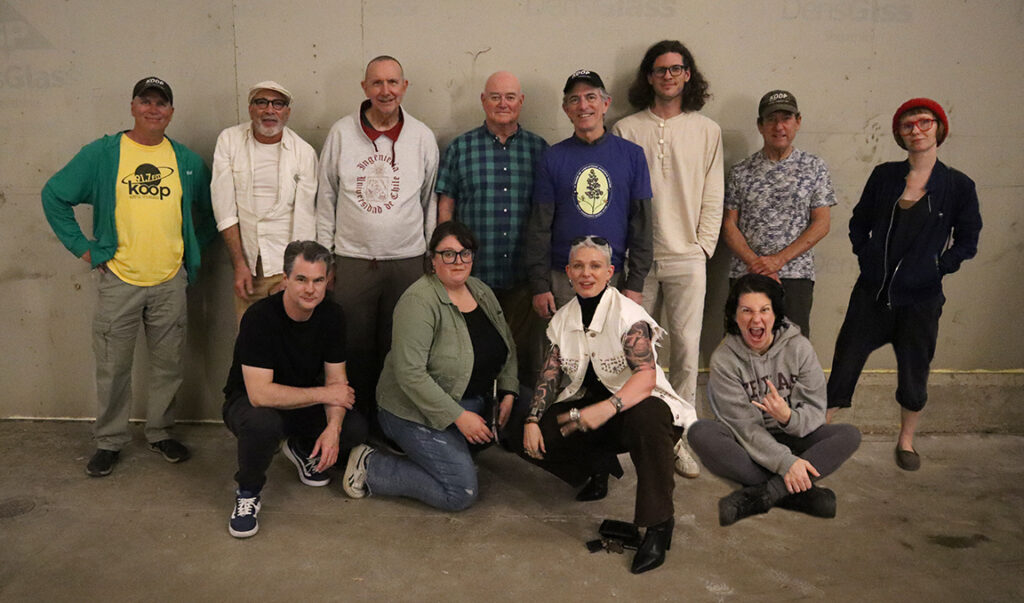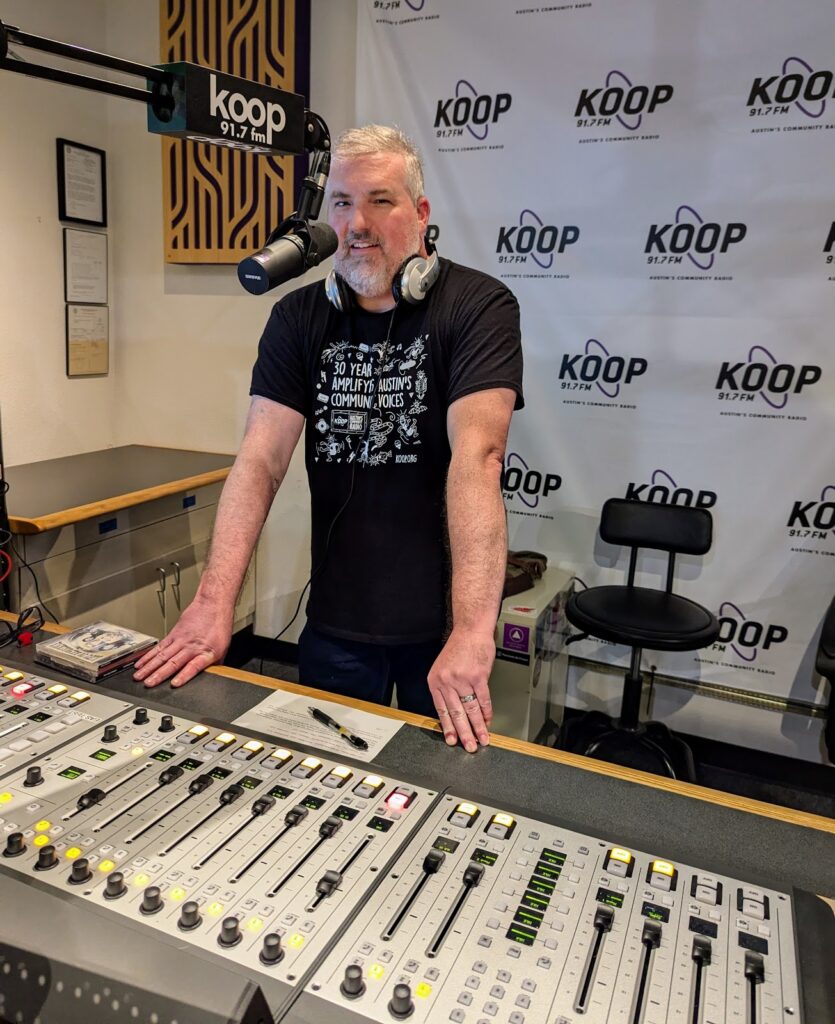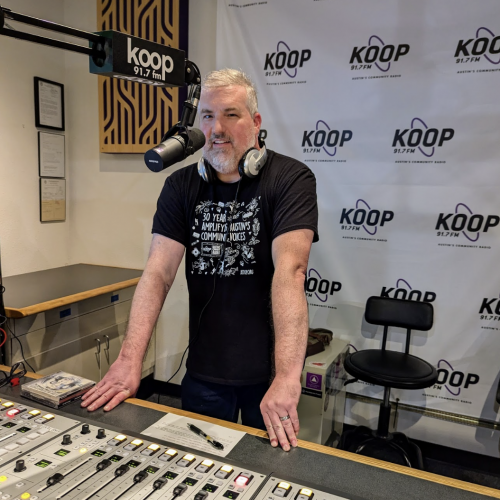
“Are you going to be a programmer?”
“What kind of show do you want?”
These are questions I’ve been asked many times since I began volunteering for KOOP a couple of years ago. My answer has always been some form of “I don’t know, I just like volunteering.” However, as you may or may not know, part of the KOOP volunteer experience–and indeed KOOP’s mission–includes training volunteers to be certified programmers. As with everything else KOOP does, all training is organized and administered by volunteers and offered for free to KOOP volunteers in good standing. All KOOP programmers are volunteers and put in their own time to bring you the music and news programs you love. And all of them have gone through this process.
As much as I love music, I had never in my life considered that I would want to be on the radio. In fact, since joining KOOP, writing about music has been more than enough for me. But, at some point, I decided I wasn’t going to turn down a free opportunity to learn the art of radio. So in February of 2024, I started the process! A year and a half later, I am finally a certified programmer. I thought it might be a good idea to share my experience through the training process so people who will be going through the process have an idea of what to look forward to!
Every month, the Training Team (pictured) schedules three nights for beginners: Federal Communications Commission (FCC) Policy, and two nights to learn various aspects of the studio environment.

On the first night, the trainers will go over FCC requirements. It may seem a little dry, but it’s very important information that anyone getting into radio absolutely needs to know and take to heart. Also, since KOOP broadcasts over the web, we are beholden to the Digital Millennium Copyright Act (DMCA).
The second and third nights of training encompass actually learning about the studio equipment. This is where the rubber really hits the road. First, you’ll be introduced to the boards and other equipment, then trainees are given a chance to learn hands-on by selecting music (either brought to the studio or pulled from KOOP’s vast library of physical media). For many, like myself, this will probably be the first time they’ll hear what they really sound like on air. For people not used to this, it can be a bit of a hurdle to jump through at first, but being on mic can become less and less of a weird experience with more practice!
Once trainees have completed the FCC and studio training, the real fun begins: apprenticeship! By the end of the required six sessions (five sessions with music, one with News and Public Affairs or vice-versa), one should confidently know how to run the studio by themselves. Of course, apprenticeship will look different for everyone, but in my case, I had one session observance Writing on the Air, three on The Emo Diaries, mostly observing in-studio guests, but once co-hosting and selecting music, and three times on Ear Candy 2.0, co-hosting and spinning records. On my last stint with Ear Candy 2.0, DJ Marc left the studio for several minutes, leaving me alone to run his show. Terrifying? Yes. But once I figured out what was happening, I snapped out of it, and kept the show going! All this to say, there may be some stressful or even scary moments, but just remember, everyone has been through this, and they are all here to help!
Thanks to a very successful capital campaign, the KOOP studios have recently updated equipment, so I was able to learn on the old and the new boards, which was for me an interesting and educational transition.
Finally, there is an online test which covers mostly FCC/DMCA rules, and the in-studio test: 30 minutes on air, where trainees get to have their own show and exhibit studio proficiency. I just completed the test in early August and am now one of KOOP’s newest programmers.

That said, I don’t know when you might hear me on the radio. I’m still not sure I want my own show, but I’ll likely be doing some substituting and probably joining a collective of DJs to get more practice in. Heck, I don’t even have a DJ name yet!
In addition to studio instruction, the Training Team also offers opportunities to learn such things as turntable setup and the basics of Audacity.
Hopefully, this article will help the next batch of KOOP programmers-in-training understand the process. It’s a lot to learn, but a ton of fun, and very exhilarating getting in that studio and having it all to oneself!
